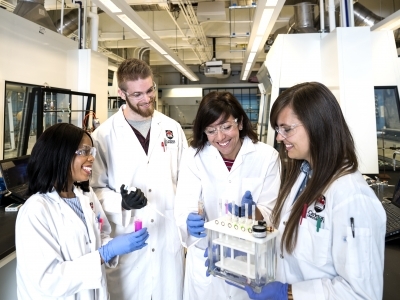–Written by Lesley Barry
On Sept. 26, 2017, Carleton University doctoral candidate Lama Altoaimy uploaded her revised dissertation.
Her analysis of how Twitter users in Saudi Arabia were debating the country’s ban on women driving had been successfully defended four days earlier and she was relieved and happy at the conclusion of her PhD program.
Minutes later, relief turned to disbelief—and then to jubilation. In an extraordinary coincidence of timing, the ban was finally lifted.“It was amazing news,” says Altoaimy. “It was great. It’s a major victory for all Saudi women.”
Altoaimy, who spent most of her life in Saudi Arabia, has first-hand experience of the ban. “To go anywhere, to work or study or visit a friend, you have to arrange for a driver, which is expensive for many families,” she reports.“Some women also suffer harassment from hired drivers. Being able to drive means freedom and independence, as well as escape from an environment where women can be exposed to toxic forms of masculinity.”
Altoaimy came to Ottawa in 2011 when her husband, a pediatrician, was offered a fellowship at the Children’s Hospital of Eastern Ontario.With a master’s degree in applied linguistics under her belt, she decided to join Carleton’s one-year certificate program in teaching English as a second language offered by the School of Linguistics and Language Studies.
“The PhD program at the school was just starting. I was interested in the effect that social media was having on social issues in Saudi Arabia, and my professors encouraged me to apply.”
Deeply conservative Saudi Arabia has embraced Twitter. Smartphones are everywhere in the overwhelmingly urban society, where 90 per cent of the population is under age 55. Clerics, institutions and government agencies communicate through Twitter; King Salman has his own account.
The result is that while physical public spaces in the kingdom remain highly segregated, with women required to use separate spaces in most buildings, and while traditional media remains tightly controlled, Twitter offers a revolutionary virtual public space in which users can be anonymous, women and men intermingle, and women speak freely on social issues.
“Women’s voices have rarely been heard in Saudi society,” says Altoaimy. “Their issues have never been opened up to public debate.”
Altoaimy worked with a computer programmer to extract more than 6,000 tweets sent during three months in 2015 under hashtags related to the driving ban and then analyzed language patterns.
“Most tweets weren’t about saying yes or no to women driving, although the majority were supportive. More often they reflected efforts to reinterpret religious opinions that currently limit women and to renegotiate what it means to be a woman or a man in this society.”
Tradition and conservatism, not simply religion, are the primary sources of rules that constrain women, says Altoaimy.
“These rules are about the identity of the whole country. Women are talked about as symbols in ways that support society’s conservative self-image. In using social media, women are speaking for themselves and saying: ‘We are not just symbols. We are humans as well, and we suffer. We suffer from not being able to drive, we suffer from these laws that control our lives.’
“This is a huge accomplishment. It’s not easy to come forward in that society; there are many things that hold women back. I’m grateful for all of the women who were brave enough, despite vicious attacks, to speak out.”
Altoaimy and her husband are heading back to Saudi Arabia soon, before winter begins. A teaching post at her old university beckons, a prospect she’s excited about.
“When I last lived in Saudi Arabia, it wasn’t common to talk about women’s issues and women’s rights. Now, when I go back, I’ll be able to speak a little bit more freely. The country is changing, and I hope that I can help support more change. It’s going to be interesting.”
Altoaimy will be graduating in November with a PhD in Applied Linguistics and Discourse Studies.
Wednesday, October 18, 2017 in News, Research
Share: Twitter, Facebook



